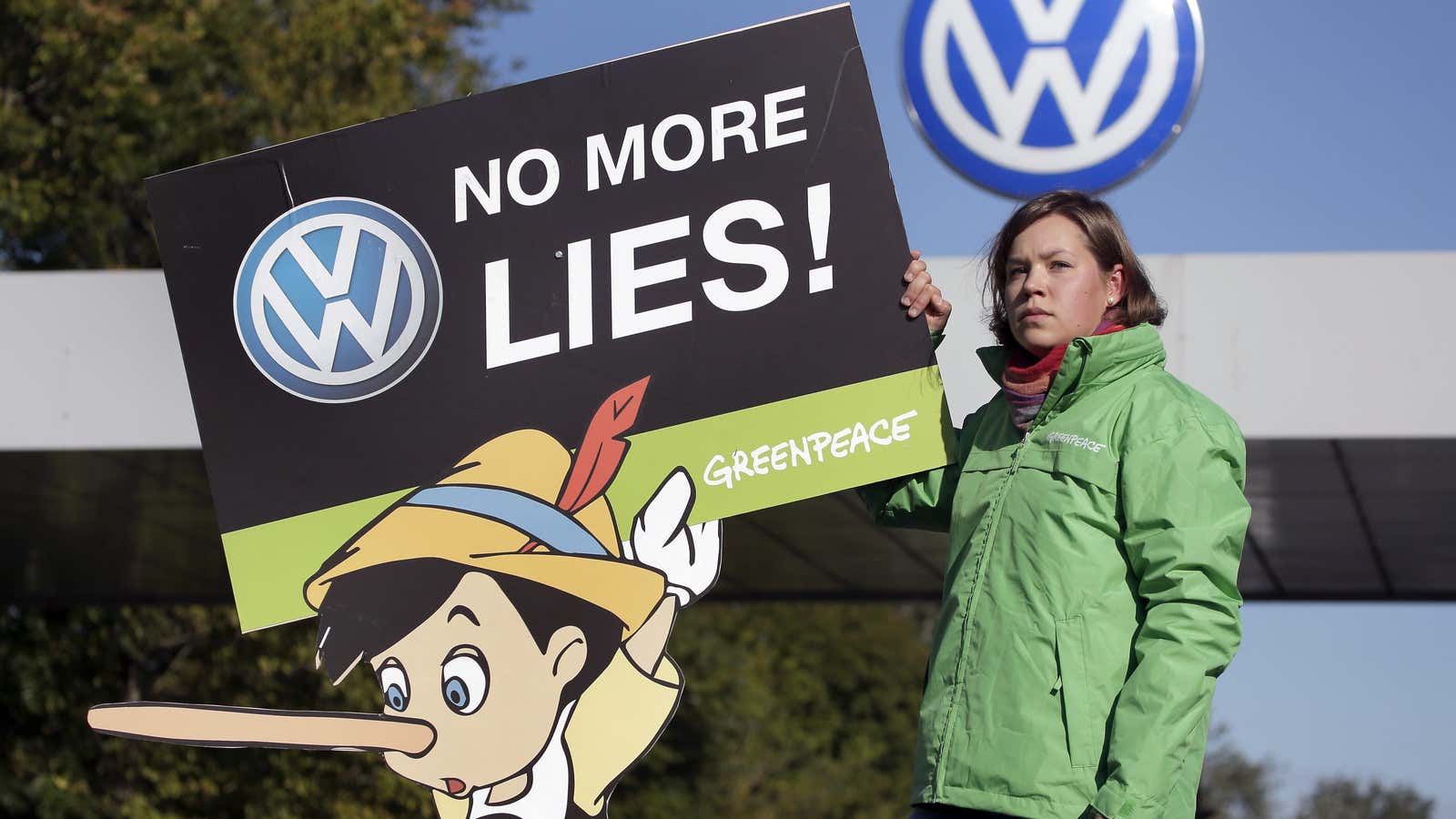VW is in trouble. Its multi-year deception to hoodwink US environmental laws is costing it billions of dollars, in addition to inestimable public good will. Worse, the scandal has threatened the company’s future. Until last year the maker of the world’s best-selling cars, VW has had to pivot away from its long-term strategic bet on diesel-fueled vehicles, which are at issue in the deception, and to electrics.
Now, in what would seek to eclipse Tesla’s pathmaking electric strategy, VW appears to be poised for a gigantic down-payment on that new future with a possible $11 billion battery factory.
Tesla CEO Elon Musk has tethered the future of his company to the construction of a $5 billion “Gigafactory,” an expansive plant in Nevada that in one swoop would double global lithium-ion battery-making capacity. Musk says that the factory’s economies of scale will lower the price of his batteries—the most expensive component of an electric car—by about 30%.
VW’s own plans are sketchy—a story broken by Handelsblatt, the respected Dusseldorf-based business newspaper, said the idea is to get past Dieselgate, as many call it, and become an industry leader in electric industry technology. As another piece of this strategy, the company on May 24 announced a $300 million investment in Gett, the Israeli ride-sharing company. The VW board is likely to approve the battery factory when it next meets June 22, the newspaper said. Quartz has reached out to VW for comment, and will update accordingly.
But judging just by the expense involved—more than twice Tesla’s spending—the VW battery plans are typically of global ambitions. The plant would be built in Salzgitter, where the company currently makes internal combustion engines. There were no details on whether VW would rely on its own battery chemistry or design, but only that it wants to avoid reliance on existing battery giants such as Panasonic (which makes Tesla’s batteries), LG (supplier to GM, among others) or Samsung.
If VW does intend to go its own way, it will be a big gamble, pitting it against incumbents that have worked out the bugs of immensely complex battery manufacturing through years of trial and error. Similarly, it is unlikely to find any commercial-scale lithium-ion chemistry that isn’t produced by one of the Asian giants it wants to avoid.
Still, VW has said that it intends to be selling 1 million pure electric vehicles a year by 2025. Musk has said that he intends to reach that volume by 2020, although most analysts expect that scale—if it is achieved—would come considerably later, and perhaps the same year as VW.
